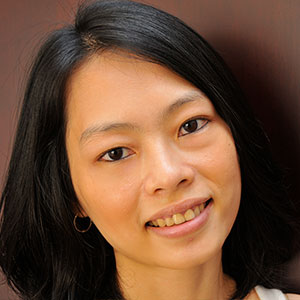In my November column, "Malaysia’s vote on protecting human rights defenders, diplomatic window dressing", I raised the question of the commitments of the 117 countries which voted "yes" to the United Nations' Declaration on Human Rights Defenders, including Malaysia.
 The question was raised mainly due to the consistency of the authorities in cracking down on those who speak against government policy, which at this stage could suggest that such forms of intimidation are at the heart of the administration's tactics.
The question was raised mainly due to the consistency of the authorities in cracking down on those who speak against government policy, which at this stage could suggest that such forms of intimidation are at the heart of the administration's tactics.
There are various levels of repression. In Malaysia, repression has its own dimension. For the most part, it sets restrictions on individuals' civil rights which anticipate the limiting of coordination and mobilisation capacity of groups and individuals, as we have witnessed in many recent cases on human rights activists.
Jakarta Globe reported last week's deportation of an Indonesian rights activist, Mugiyanto Sipin, who was supposed to speak at a forum titled "People’s movement can bring change" held by the Bersih group in conjunction with its Yellow Mania event.
Formerly a student leader during the republic’s reformasi movement in 1998, Mugiyanto had played an important role in organising student resistance and action against former president Suharto’s "orde baru" regime. He was detained upon arrival at KLIA and likely deported due to his background.
According to Mugiyanto, the police told him that Malaysia did not allow foreigners to come and speak on politics as it was considered a form of political interference.
I think the authorities are aware that Mugiyanto is not a "core" threat to Malaysian security. Rather, what’s happening to Mugiyanto and several other foreign activists in the recent past such as student activist Joshua Wong from Hong Kong's "umbrella movement" is part of the state's attempt to increase its power to ban and deport anybody it likes.
The Indonesian ambassador to Malaysia, Herman Prayitno, said Indonesia respected the government’s decision to deport Mugiyanto, which could an attempt to not jeopardise bilateral ties.
This however reflects a wider problem in Asean, because this incident impinges on freedom of expression as guaranteed in the 2012 Asean Human Rights Declaration.
It is reported that 62 NGOs, all members of the Indonesian Civil Society Coalition for the Asean Community, condemned the act because it contradicted the spirit of the newly established Asean Economic Community (AEC).
In this case, it also shows that foreign policy is much bigger than human rights.
This proves my scepticism of countries that voted "yes" to the UN Declaration on Human Rights Defenders is not without reason.
In what appears to be a dark time for human rights, dissent and protests in Malaysia, Mugiyanto’s deportation marks an ongoing pattern of repression against human rights activists and generally dissenting voices.
What are the justifications for imposing travel restrictions on Mugiyanto?
The issue now is not only an attack of freedom of thought, speech and expression, but also on freedom of movement.
Apart from Mugiyanto, stand-up comedian Newendi who was also supposed to perform at the Yellow Mania event was approached by Special Branch officers because he did not have a special permit from City Hall to perform.
Why harass Mugiyanto and Newendi? On what basis do we claim they are threats to national security?
There could be at least two explanations. First, there is generally a consensus that authorities repress to control dissent. So what happened last week is mere political intimidation by the authorities.
Second, the restrictions are imposed to prevent any form of diffusion of strategy and methods of resistance. Diffusion may occur in two ways – directly through individuals or organisations or indirectly through channels such as the media, books or the Internet.
Globally, diffusion of strategy like this has generally increased since the 20th century. With the way things are now, the authorities' retaliation strategy to some degree could generate external third-party support for, intervention in, and internationalisation of the struggles by non-state actors.
For a free society to work, its citizens must have confidence that the rulers will protect their rights. But the apparent abuses on human rights activists instead suggest that our government wants us to live in fear and that our rights are at their mercy.
For the NGOs to calculate the chances of success in their resistance strategies, as suggested by some scholars, the fundamental variable does not lies with the strength that a state has but rather tactics on ways to sustain withdrawal of consent and noncooperation with the state that could drain the state's sources of power.
Many might refute this, but rulers depend upon the ruled.
To this point, shaping public opinion is crucial in overcoming these challenges on restrictions on freedom.
The undemocratic core of the regime makes this a daunting task due to the constant tension between those in power and those being repressed.
But as Ghandi said in 1925, "The method of reaching the heart is to awaken the public opinion. Public opinion, for which one cares, is a mightier force than that of gunpowder."
A government’s ability to command obedience is reduced if it is widely perceived as acting in an unjust and unconstitutional manner. – January 11, 2016.
* This is the personal opinion of the writer or publication and does not necessarily represent the views of The Malaysian Insider.


Comments
Please refrain from nicknames or comments of a racist, sexist, personal, vulgar or derogatory nature, or you may risk being blocked from commenting in our website. We encourage commenters to use their real names as their username. As comments are moderated, they may not appear immediately or even on the same day you posted them. We also reserve the right to delete off-topic comments